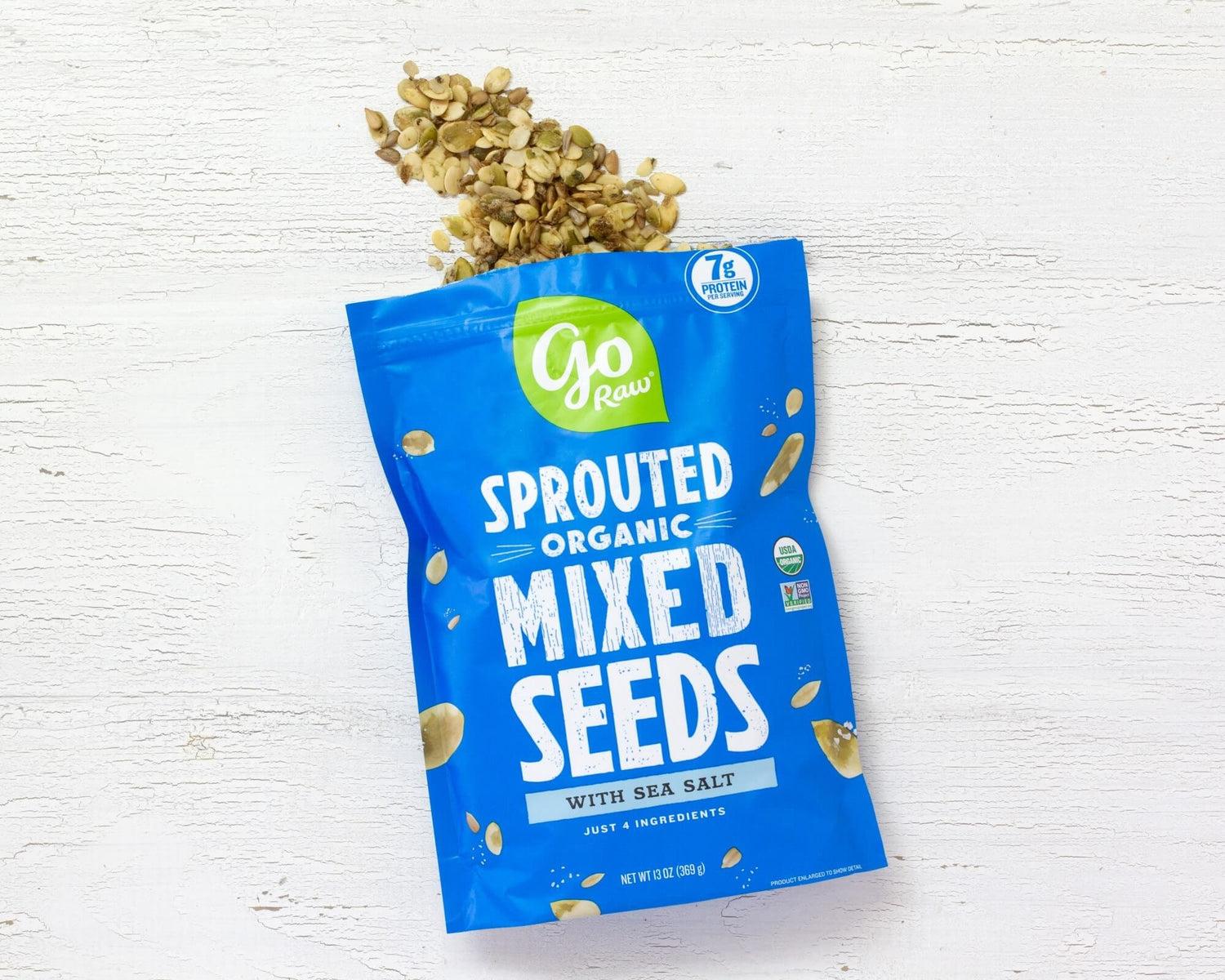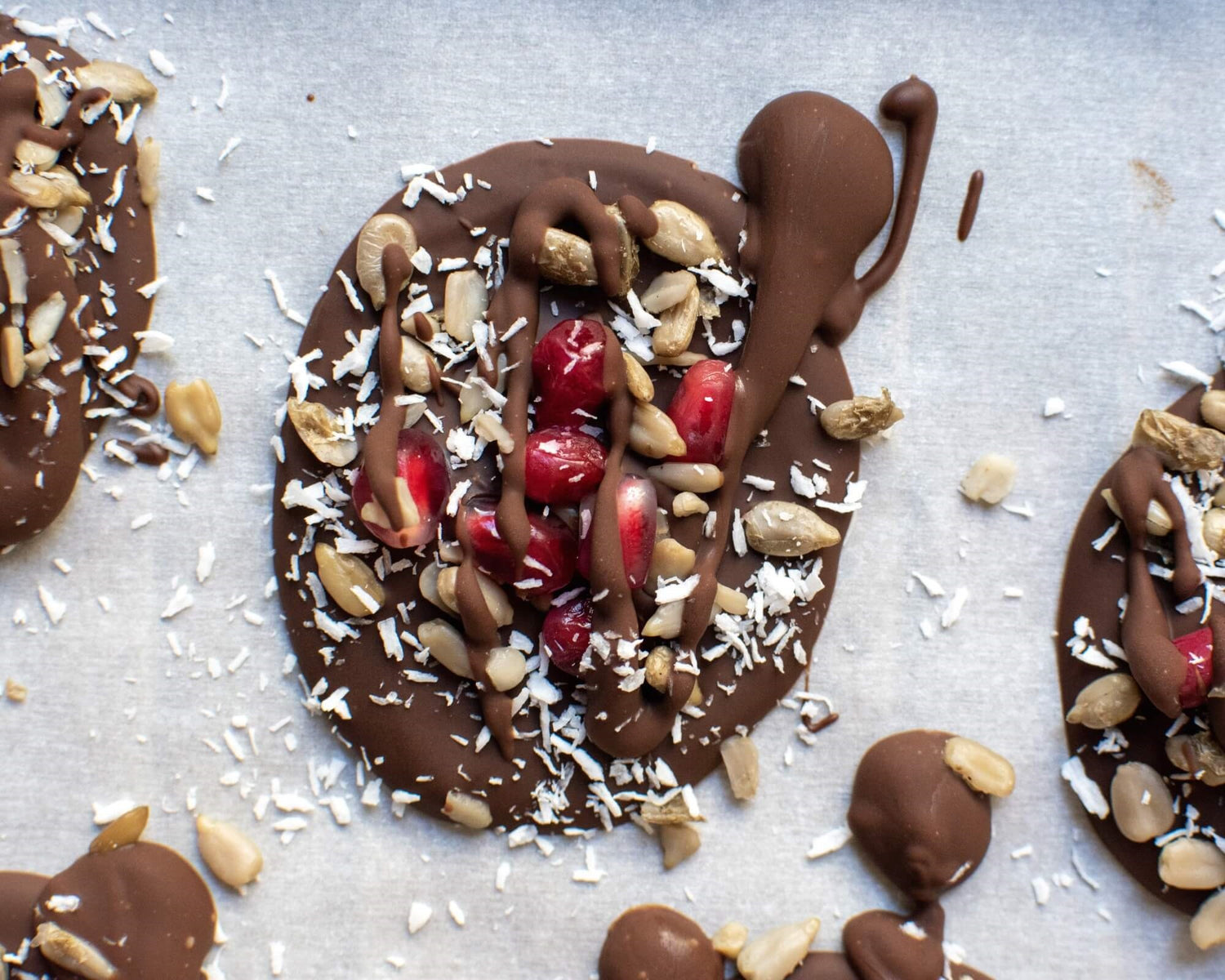Written by Michelle Ritchie
Gut health has become an increasingly important topic due to the mounting evidence demonstrating its significant impact on our overall health, happiness, and energy levels1.
Gut microbiome—the many hundreds of microorganisms living in your intestine—are at the very heart of gut health. Having a wide variety of good bacteria in your gut is believed to help enhance your immune system, boost mental health and mood, combat obesity, control brain health, prevent asthma and allergies, reduce autoimmune disorders, control blood sugar and diabetes, and benefit heart health2. Having a healthy gut has even been linked to longevity3.
There are many things that affect the diversity of your gut bacteria, especially the foods you eat. Given the importance of gut health to your overall health and wellbeing, we wanted to share the top tips on how to improve your gut health and live your best life.
- Get enough sleep. Not getting enough sleep or good quality sleep can have serious impacts on your microbiome and gut health, which can contribute to more sleep issues4. Try to prioritize getting at least 7-8 hours of uninterrupted sleep per night.
- Reduce stress levels. Research shows that stress can impair your gut bacteria and make you susceptible to infection5. For great tips on how to reduce stress, check out our blog Ways to Recognize, Manage, and Minimize Stress. Additionally, finding ways to practice self care can also help manage stress.
- Avoid sugar (including artificial sweeteners). Refined sugar is inflammatory and can cause an imbalance in gut microbes; sugar-free alternatives aren’t much better. In fact, evidence shows that artificial sweeteners may increase blood sugar by stimulating unhealthy bacteria growth in the gut microbiome1. So, cut sweeteners from your diet as much as you can!
- Eat more plant-based foods. A plant-based diet (the more variety the better!) appears to be beneficial for gut health by promoting the development of a more diverse and stable gut microbial system6. Consider eating fewer animal-based foods and a greater variety of whole, plant-based foods such as vegetables, fruits and berries, whole grains, legumes, nuts, and seeds (such as Go Raw Sprouted Seeds!).
- Increase dietary fiber intake. Certain bacteria digest fiber, producing short-chain fatty acids, which are important for gut health. Fiber may help prevent weight gain, diabetes, heart disease, and the risk of cancer1. Good sources of fiber include whole grains, legumes, peas, oats, bananas, berries, Jerusalem artichokes, asparagus, garlic, onions, and leeks4.
- Drink plenty of water. Drinking enough water has been shown to have a beneficial effect on the mucosal lining of the intestines, as well as on the balance of good bacteria in your gut. Staying hydrated is a simple way to promote a healthy gut4. While it differs per person, health experts commonly recommend eight 8-ounce glasses per day.
- Eat more slowly. Thoroughly chewing your food and eating your meals more slowly can help promote the absorption of nutrients and aid in better digestion. This may help you maintain a healthy gut and reduce digestive discomfort4.
- Exercise regularly. Regular exercise not only contributes to good heart health and weight, research also suggests it may promote biodiversity of your gut flora and improve gut health7. So, get moving! Try to incorporate at least 30 minutes of moderate intensity exercise into each day, along with muscle strengthening activities 2-3 days a week. Your gut will thank you!
- Eat fermented foods (or take a probiotic). Fermented foods such as yogurt, sauerkraut, kimchi, kombucha, and kefir introduce healthy bacteria to your gut, including Lactobacilli, which can reduce gut inflammation and the amount of disease-causing microbes in the gut1.
- Avoid taking antibiotics unnecessarily. Antibiotics are damaging to the gut microbiota and to your immunity. While antibiotics are needed to fight bacterial infections, doctors often over prescribe them, which can lead to antibiotic resistance. So, if your doctor prescribes antibiotics, don’t just take them; make sure they are medically necessary7.
- Brush and floss your teeth regularly. Your mouth is the gatekeeper of your gut. In fact, the healthier your mouth and oral microbiome are, the healthier your gut, immune system, and entire body. So brush up! You may also want to avoid antibacterial mouthwashes that wipe out the good bacteria our microbiomes need to thrive8.
- Cook with herbs and spices. Cooking with herbs and spices not only enhances the natural flavor of foods, it can also help boost gut health and improve overall well being. Some herbs and spices to try include garlic, cayenne pepper, ginger, cinnamon, turmeric, oregano, rosemary, cumin, and peppermint9.
- Reduce alcohol consumption (except some red wine). In terms of gut health, alcohol consumption is generally not the gut’s best friend and can increase the abundance of pathogenic microbes. That said, moderate red wine consumption may possibly increase beneficial gut microbiota diversity—likely due to its higher polyphenol content10.
- Avoid smoking. Smoking affects gut health as well as the health of the heart and lungs. A 2018 review of research published over a 16-year period found that smoking alters the intestinal flora by increasing potentially harmful microorganisms and decreasing the levels of beneficial ones7.
- Eat foods rich in polyphenols (like dark chocolate!). Polyphenols are plant compounds found in red wine, green tea, dark chocolate, olive oil, and whole grains. They are broken down by the microbiome to stimulate healthy bacterial growth1.
- Eliminate processed foods. Reducing the amount of refined carbohydrates and processed foods (which get absorbed quickly into your small intestine without feeding your microbes) can contribute to better gut health4. As such, try to eat whole, real foods as often as possible. While it’ll require more prep work, it's SO worth it!
- Minimize the use of disinfectant cleaning products. Yup, we get it, this is a hard one right now! While certain measures are needed to stay healthy and safe in today’s environment, studies have shown that kids who grow up on farms (or with pets) have 50% fewer allergies, asthma, and gut-related disorders compared to those who grow up in more sterile environments with higher disinfectant use11. So, get dirty! :-)
How do you keep your gut healthy and functioning well? We’d love to know! Please leave us a comment below to share your tips.
1 Why the Gut Microbiome Is Crucial for Your Health. Healthline. Jun 2017.
2 Gut Bacteria in Health and Disease. Gastroenterol and Hepatol, 9(9): 560–569. Sep 2013.
3 Does a Healthy Gut Equal a Long, Healthy Life?. Healthline. Nov, 2017.
4 What’s an Unhealthy Gut? How Gut Health Affects You. Healthline. Jul, 2018.
5 Stress at the Intestinal Surface: Catecholamines and Mucosa-Bacteria Interactions. PubMed.gov, 343(1):23-32. Jan 2011.
6 The Effects of Vegetarian and Vegan Diets on Gut Microbiota. Frontiers in Nutrition, 6: 47. Apr 2019.
7 10 Ways to Improve Gut Health. Medical News Today). May 2019
8 The Mouth-Gut Axis: Why Bacteria and your Teeth Are Key to Digestive Health. The Gut Stuff. Nov 2017.
9 9 Super Herbs and Spices for Gut Health. Health Plus. Oct 2019.
10 8 Surprising Things That Harm Your Gut Bacteria. Healthlinee. Jun 2017.
11 Amish Children Living in Northern Indiana Have a Very Low Prevalence of Allergic Sensitization. Journal of Allergy and Clinical Immunology, 129(6): 1671-1673. Jun 2012.






2 comments
Great Information!! It’s true, the health of your gut is extremely important for your immune system, heart, weight, and many other aspects of health. Well described with lots of good information. Thanks for sharing this helpful post.
Raw for life!